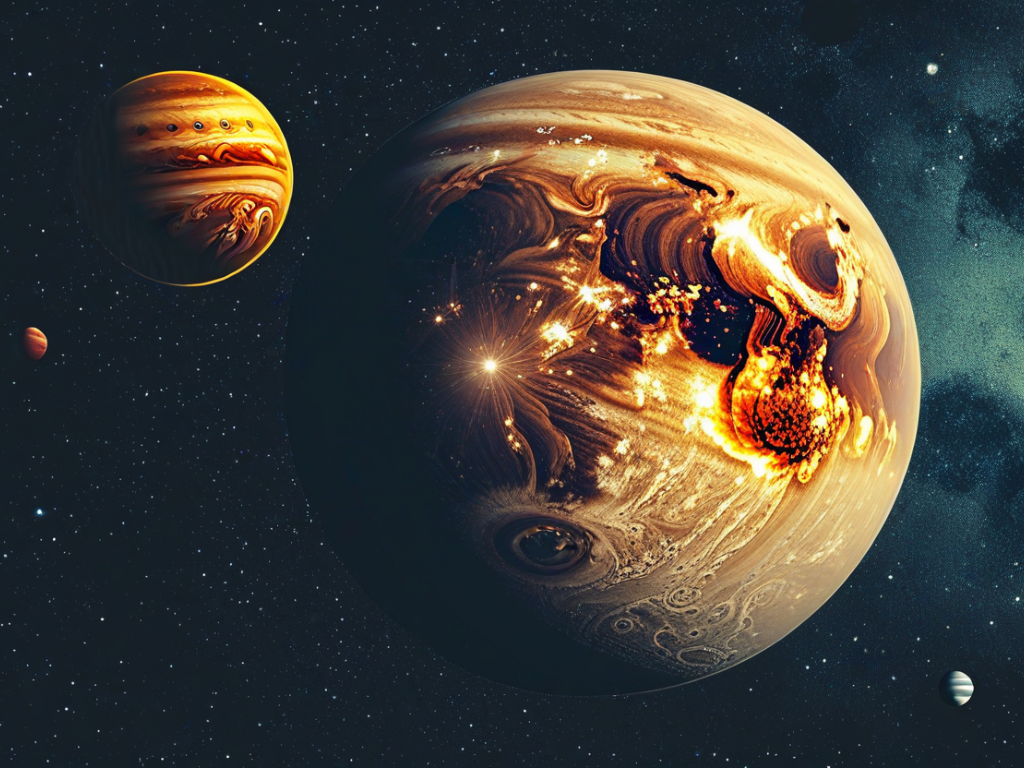The Impact of Retrograde Planets on Our Daily Life

As we gaze into the night sky, we find ourselves entranced by the celestial symphony that unfolds before us, a pantomime of stars and planets waltzing in their designated orbits. Unseen though, these cosmic entities weave a profound influence on our lives. Perhaps one of the most puzzling of these dancers is the retrograde planet. If you have heard about retreating Mercury or Jupiter reversing its course and shivered in mild apprehension, you are not alone. Retrograde motions of planets often come with a cloud of misunderstanding and apprehension. So, let’s take our lanterns of knowledge and illuminate the shadows, unraveling what these cosmic reversals truly mean.
Astrologically, the word retrograde originates from the Latin term retrogradus, which means “backward step.” If you track a particular planet’s movements against the backdrop of distant stars, you will see it takes a seemingly erratic path. Rather than moving steadily forward in its orbit, it sometimes appears to stop and move backward, a phenomenon we call a retrograde.
But let us dispel a misconception here. The planets do not technically move backward; it’s an optical illusion that happens when our swift home sphere, Earth, overtakes the slower outer planets. It’s much like when you overtake a slower vehicle on the road, from a certain perspective, it may appear that the slower vehicle is moving backward, but it’s not; it’s purely our perspective. So too, it is with retrograde planets.
For us earthlings, these retrogrades can carry significant symbolism and can impact various aspects of our daily lives. The specific nature of the retrograde’s effect often depends on which planet is appearing to take a backward sojourn. Each planet carries its unique set of attributes and energies – hence, it only makes sense that their retrogrades bring their own unique experiences.
Mercury, the messenger of gods and the ruler of our communication, goes retrograde about three to four times a year, the most frequent among all the planets. During this phase, matters relating to communication, technology, and travel may go haywire. Misunderstandings, delays, and technological glitches are often par for the course. But remember, these are not obstacles to fear. They are opportunities to pause, reflect and bring much-needed improvements.

Let’s consider Venus’s retrograde motion, the planet of love, beauty, and abundance. This hardly happens, only once every 18 months, but when it does, our relationships and values may come under the microscope. We might experience emotional whirlwinds, inconsistencies, and even renew old friendships. It’s a time given to us to understand what truly matters and develop stronger bonds.
Then we have Mars, the planet embodying ambition, aggression, and drive. A retrograde here—once every two years—could momentarily muddy our motivation, drain our drive, and stir our competitiveness. Yet, it’s a perfect time to step back, strategize, and realign our aims.
As for the outer planets – Jupiter, Saturn, Uranus, Neptune, and Pluto – they may retrograde once a year for several months at a stretch. Their slowed dance may stir subtler, yet more profound, structural shifts in our lives.
With Jupiter—the planet of luck and expansion—going retrograde, we might feel our growth stunted, but this time is meant for inward expansion and spiritual growth. Saturn—the planet of discipline and structure—going rogue silently nudges us to recalibrate our responsibilities and redefine our boundaries. Uranus—the rebel planet—has its retrograde awakening our inner maverick, propelling us toward radical self-realization. While Neptune—the planet of dreams and intuition—nudges us to pay heed to our deepest creative impulses and soul whispers. Lastly, Pluto—the planet of transformation—uses its retrograde to stimulate our inner Phoenix, urging profound self-transformation.
However, these planetary phenomena are not meant to incite fear or anxiety. They invite us to introspect and encourage us to realign with the cosmos and ourselves. Think of them as divine checkpoints reminding us to slow down and tune into our needs, dreams, and purpose. Like the planets, we too orbit in our life’s journey, and sometimes a backward glance can bring beautiful forward transformations.
So cosmic voyager, the next time you hear a planet is going retrograde, there’s no need for trepidation. Knowing its energy and influence, see it as a nudge from the universe encouraging you to look within, reflect, and learn. Our celestial comrades only mean to guide us, reminding us that to progress forward, we sometimes need a meaningful meander. After all, life isn’t just about the destination; it’s also about the journey, replete with its turns, halts, and, yes, backward glances.




